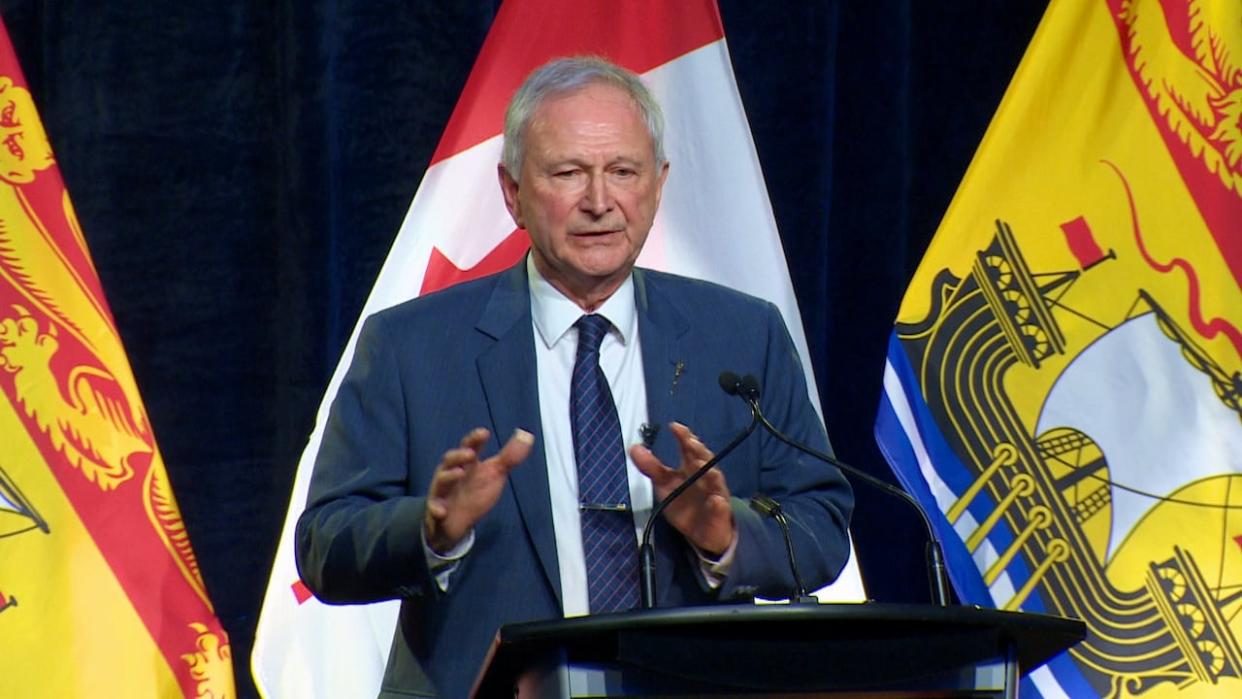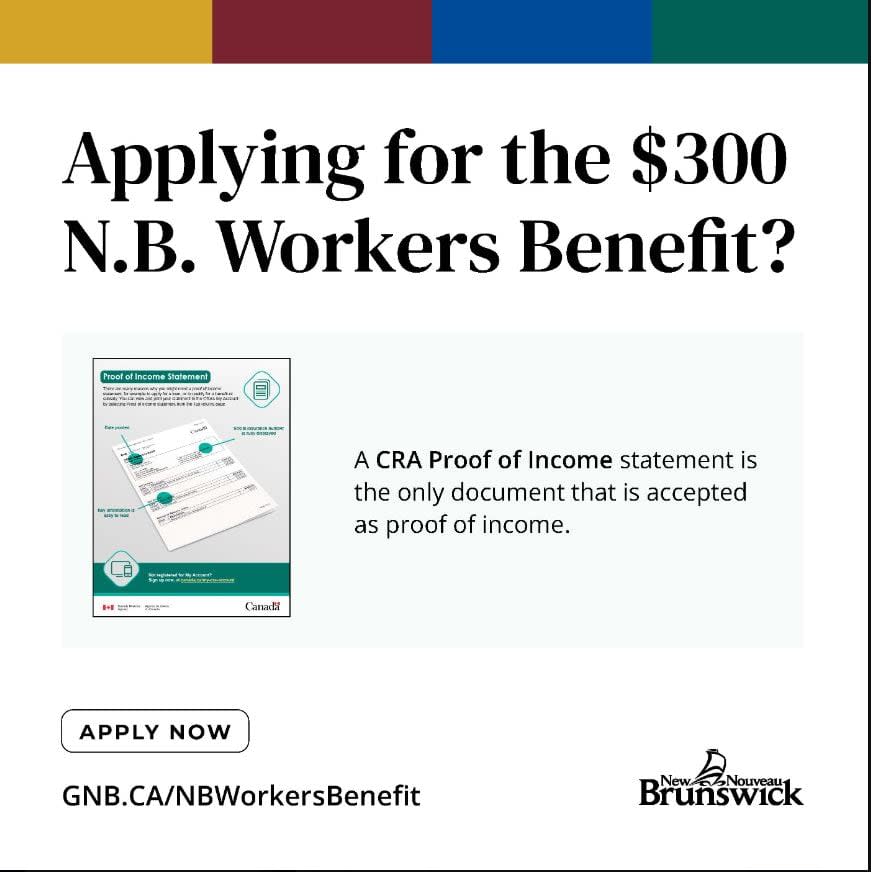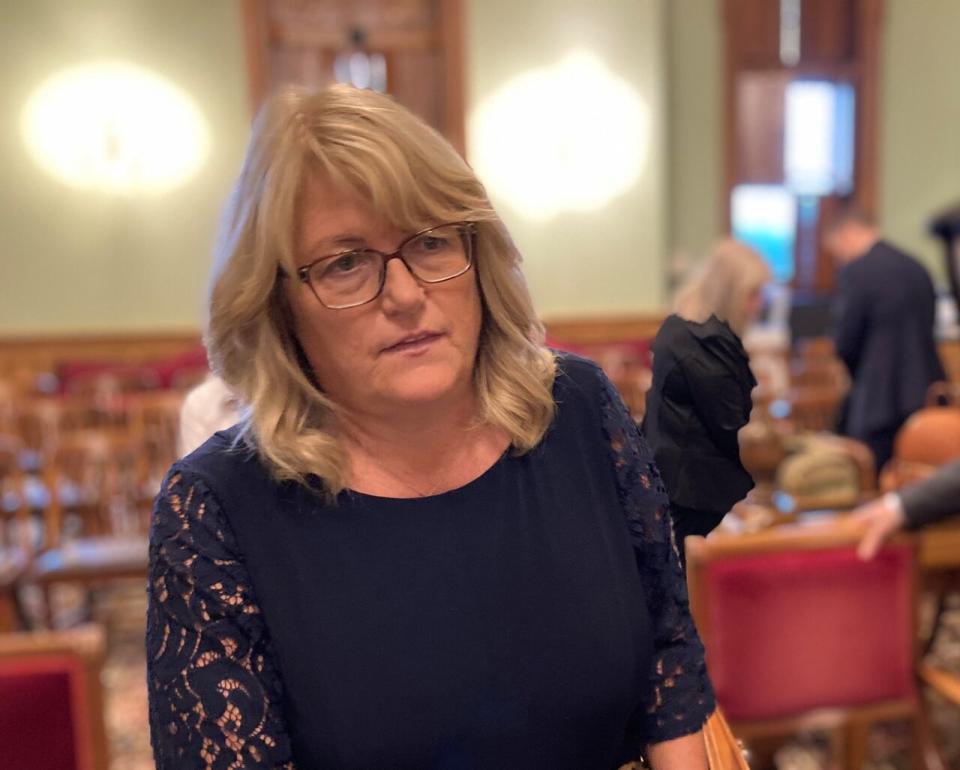Applications for N.B. workers benefit running behind government projections

- Oops!Something went wrong.Please try again later.
Applications for a one-time $300 tax-free "workers' benefit" offered by the New Brunswick government have been running well below projections, rekindling criticism the program excludes too many moderate income households, particularly those headed by pensioners.
"I think the premier forgets that these are the voters, these are the people that vote," Cecile Cassista, a seniors' advocate and Riverview town councillor.
"I think the premier needs to go back and take a look at this and make sure that the seniors benefit from this $300."
In January, Premier Blaine Higgs announced his government would be helping "working" families with incomes below $70,000 with the cost of living by issuing $300 "affordability" cheques to approved applicants
The program excludes individuals who cannot show they had employment income in the last two years of at least $3,000. But even with that disqualification, the province has been insisting 250,000 couples and individuals will still qualify for the money.

Cecile Cassista, executive director of the Coalition for Seniors and Nursing Home Residents’ Rights, believes light early uptake on the benefit offer shows there is room to include people without employment income. (Submitted by Cecile Cassista)
"This is a $75 million program," the Premier's Office reiterated in a media release in late February in support of its claim that at least 250,000 would be helped.
People have until June to apply for the money but the Department of Finance believed most would act quickly to claim the benefit.
Applications opened on Feb. 27 and the department added $58.8 million to its current year budget on the expectation it would receive 196,000 applications by the end of its fiscal year on March 31, a 34-day period
However, by the end of day last Thursday, halfway through the 34-day period, just 35,100 applications had come in, a sluggish early pace that has only shown signs of slowing further.
Last Wednesday and Thursday, department figures showed new applications had dropped to just above 1,000 per day, half the rate of earlier in the month.

The New Brunswick government has been advertising its $300 workers benefit on social media and elsewhere since February, but applications so far are well below expectations. (Government of New Brunswick/X)
In an email, Finance Department spokesperson Morgan Bell said that as early applicants begin to receive their $300 payments, the government believes interest in the program will increase.
"We anticipate experiencing a continued rise in applications, particularly now that cheques are already arriving in mailboxes," Bell wrote.
Higgs said the $300 benefit was limited to people who can show some employment income because those people had been "left out of different affordability measures we have put in place over the last year or so."
Higgs said pensioners in particular are being helped separately with an increase in the "low-income seniors benefit" and with changes in contribution amounts required to support a spouse in a nursing home.
But thousands of New Brunswick pensioners are not covered by either of those initiatives.
Tammey Mclean is too young for seniors benefits and survives on less than $20,000 a year she gets from a $700 per month widows pension and Canada Pension Plan survivor benefits.

Tammey Mclean survives on a $700 per month widow's pension and CPP survivor benefits. She says recent government affordability measures have passed people like her over. (Shane Fowler/CBC News)
She was preparing to apply for the affordability benefit before learning about the $3,000 employment income requirement.
"I could have used the $300," said Mclean. "Groceries are horrible."
The province has acknowledged that its claim that 250,000 working people with incomes below $70,000 are eligible for the affordability benefit is an estimate that it does not have firm data for.
Cheryl Hansen, the deputy finance minister and clerk of the executive council, told MLAs last month that the province cannot precisely know how many will be helped by a new program because most of the income and tax data that determines who benefits resides with the federal government.
"When it becomes nuanced relative to income level we are in the dark," she said.
Hansen's department points to the 267,500 couples and individuals in New Brunswick who received the HST credit in 2022 as one of the key pieces of information it used in formulating its estimate for the workers benefit. At least half of those credits, however, went to people who reported less than $3,000 in employment income.

Cheryl Hansen, clerk of the executive council and deputy finance minister, told MLAs in February her department does not have precise figures to calculate exactly how many will be helped when government launches a new program. (Jacques Poitras/CBC)
Cassista said she does not believe the province can reach 250,000 people with help given the way the workers benefit program is configured.
She believes the low number of early applicants supports that and hopes the employment income restriction can be dropped to allow pensioners and others to apply.
"They've only been piecemealing for seniors," Cassista said. "It's really unfair."

